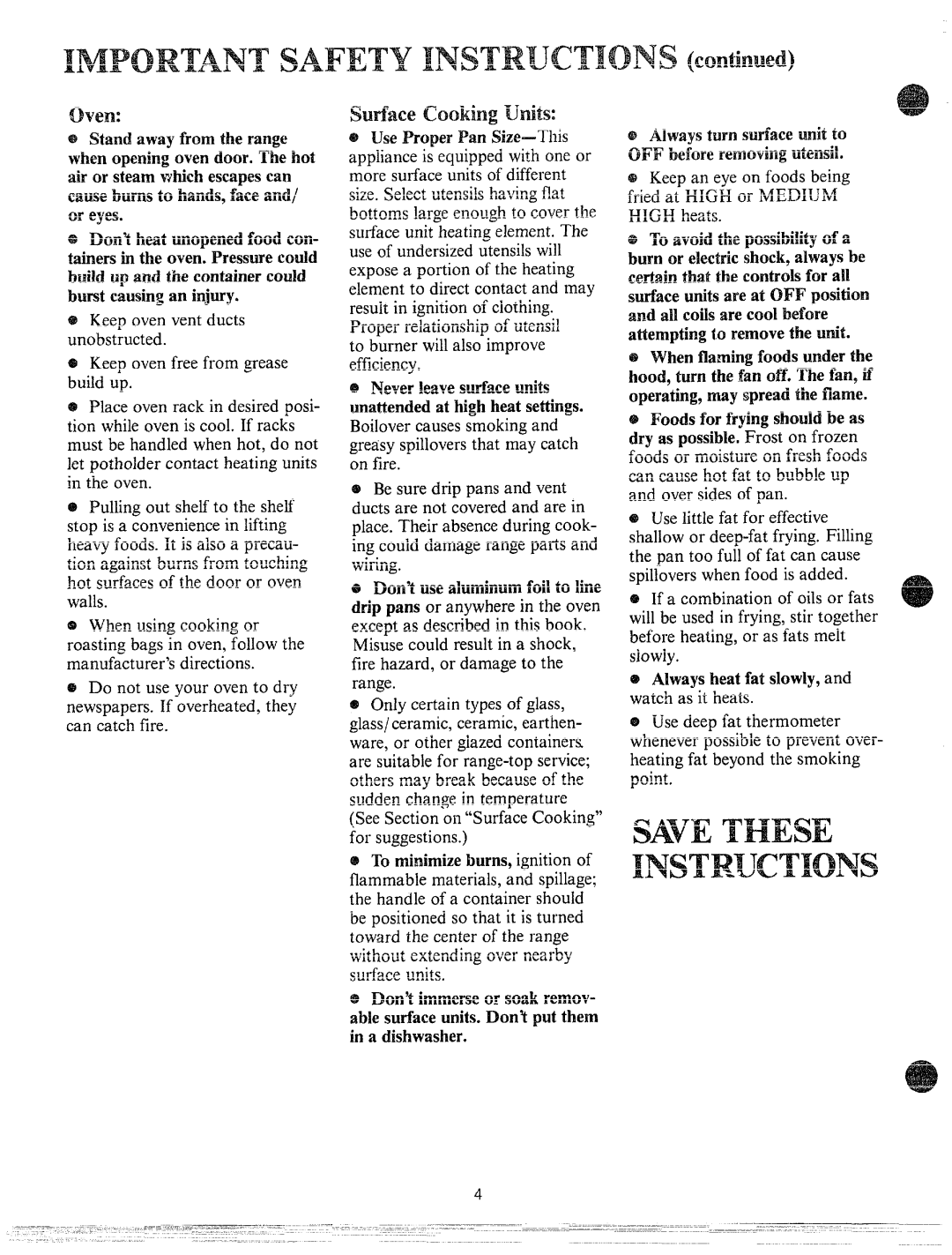
chum:
@Sand away fromthe range whenopeningoven door. The hot airor steamwhichescapescan causeburnsto hands,face and/ or eyes.
@Donl heat unopenedfood con- tainersin the oven. Pressurecould build up and tirecontainercouki! burstcausingan injury.
@Keep oven vent ducts unobstructed.
@Keep oven free from grease build up.
@Place oven rack in desired posi- tion whileoven is cool. If racks must be handled when hot, do not let potholder contact heating units in the oven.
@Pulling out shelfto the shelf stop is a conveniencein lifting heavy foods. It is also a precau- tion against burns from touching hot surfaces of the door or oven walls.
@When using cooking or roasting bags in oven, follow the manufacturer’sdirections.
@DO not use your oven to dry newspapers. If overheated, they can catch fire.
Sw’ke IJ1-lits:
@Use Proper Pan
applianceis equipped with one or more surface units of different size. Selectutensilshavingflat bottoms large enough to cover the surface unit heating element.The use of undersizedutensilswill exposea portion of the heating elementto direct contact and may result in ignition of clothing. Proper relationship of utensil
to burner willalso improve efficiency.
eNeverleavesurfaceunits unattendedat highheatsettings. Boilovercauses smoking and greasy spilloversthat may catch on fire.
@Be sure drip pans and vent ducts are not covered and are in place. Their absenceduring cook- ing could damage range parts and wiring.
* I)orn’tuse aluminumfoil to line drippans or anywhere in the oven except as describedin this book.
Misusecould result in a shock, fire hazard, or damage to the range.
@ (My certain types of glass, glass/ceramic, ceramic, earthen- ware, or other glazed containers are suitablefor
@ TOminimizeburns,ignition of flammable materials, and spillage; the handle of a container should be positioned so that it is turned toward the center of the range without extending over nearby surface units.
@Don’t immerseor soak remov- ablesurfaceunits.Donl put them in a dishwasher.
49 A]ways hum surfaceunitto (!)FFbeforeremovingutensil.
@Keep an eye on foods being fried at HIGH or MEDHJM HIGH heats.
e TOavoidthe possibilityof a burnor electricshock,alwaysbe certainthatthe controlsfor all surfaceunitsareat OFF position and all coilsarecool before attemptingto removethe unit.
@When flamingfoods underthe hood, turnthe fan off. Thefan, if operating,may spreadthe flame.
@F’OOdSfor fryingshouldbe as dryas possible.Frost on frozen foods or moisture on fresh foods can cause hot fat to bubble up and over sides of pan.
@Use little fat for effective shallow or
@If a combination of oils or fats will be used in frying, stir together before heating, or as fats melt slowly.
@Ahvays heatfat slowly,and watch as it heats.
@Use deep fat thermometer wheneverpossibleto prevent over- heating fat beyond the smoking point.
